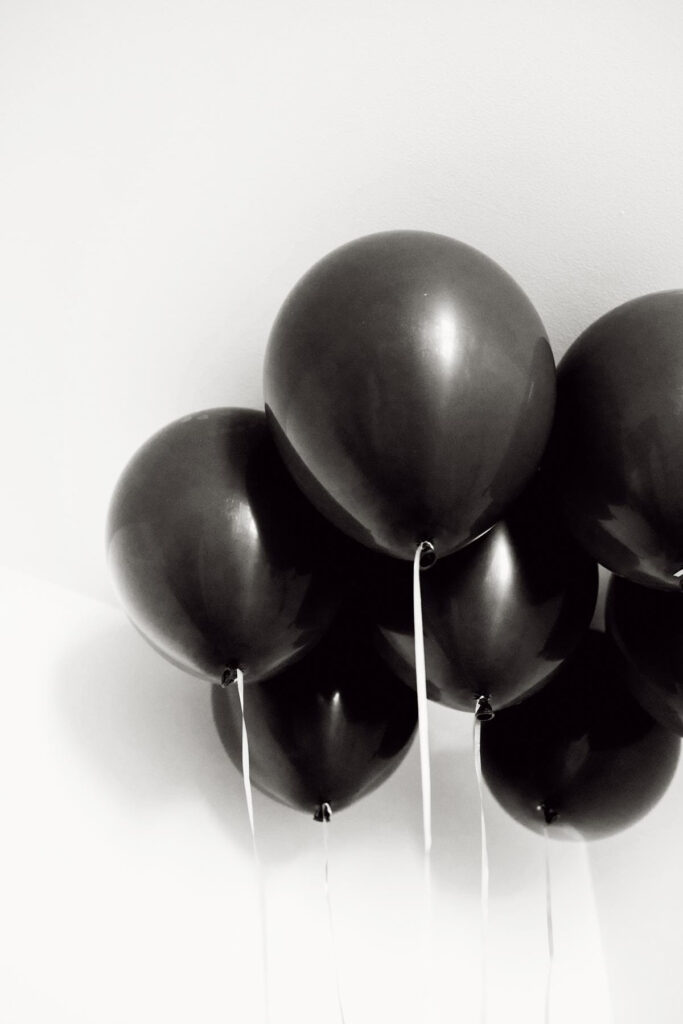A few weeks ago, I spoke with a group of residents at our church about the beauty of unplugging and how the rhythm has lent itself to many spiritual disciplines in my daily life.
At the end of the talk, the head of the program asked everyone to come around me and pray for me in this season ahead.
Hands touched my shoulders and my back as they gathered around me. A chorus of prayers began. They streamed in every direction, and I couldn’t quite catch the words of just one.
Finally, I stopped trying to hear a single strand of prayer, and I settled into the moment. I imagined each prayer like a balloon filling with helium. I imagined the balloons moving upwards and being released into the atmosphere, floating all around me as I walked through the rest of my day.
I think our prayers may linger.
Before someone replies about spiritual accuracy, I’ll be the first to say it: no part in the Bible says our prayers linger, or they necessarily have a shelf life. The closest to the concept I could find is in Revelation 5:8, describing golden bowls of incense, which are the prayers of God’s people.
It’s just something I’ve thought about lately in this series on prayer, as I’ve asked myself:
What happens when we pray?
And where do those prayers go?
Are they all around us?
Or is each prayer like leaving a message on an answering machine after the beep?
Unbeknownst to us, are we surrounded by prayers that have been said over and around us?
Do our prayers linger?
And if we say a prayer once or twice, is it enough?
Or do we have to keep knocking, and seeking, and asking?
And what about the ones who ask, seek, and knock but never feel like someone is coming to the door for them?
I realize these are just questions, but I’ve learned over the last few years that questions can spark brave intimacy with God. I used to think I could only forge a relationship with God through the knowing, but now I have evidence that some of the most tender moments have come to me from the not knowing—from the mystery of faith and the beauty of a question waiting to find its answer.
Last year, I discovered an answer to one of my prayers tucked into a Facebook status of someone I used to know.
It was a prayer I hadn’t prayed in nearly 13 years, but I remember the time I spent praying for this person. The countless times I said their name to God. The many times I pleaded in the lines of my diary, in the dark of my room, and the long drives home at night– that they would be okay. That they would find what they were looking for. And it would feel like love. Like peace. Like the darkness hushing. Like a path out of the woods.
It was both a petition and a form of surrender. The realization that I could not fix someone or make them better; all I could do was play catch-and-release with a God I wasn’t even sure of at the time.
And then, one day, I stopped praying for them. I stopped saying that person’s name on long drives home. The decision was not dramatic or even deliberate. It’s just that one day, my prayers for the person stopped, and they never started back up again.
The moment I came across the Facebook status, my heart clenched, and I started to cry. I remembered all the prayers– like a scattered mess of balloons floating towards the sky.
I called my mom and Lane. I voice-memoed my friend Melissa. But this heavy sobbing went on throughout the entire day, on and off like a faucet, as I kept thinking to myself: thirteen years ago, I would have given anything in my life to see this prayer be answered. And then I stopped expecting an answer. I grew up. I moved on. And yet here it is. Years later. With more wrinkles in my hands and grey in my hair, here it is.
I guess I’m trying to say that I think it’s okay if you’ve stopped knocking for a while.
If you’ve quit saying that prayer, if you’ve had to groan instead of speak, if praying for that one person or that one thing hurt too badly, so you had to shelf it for a little while, I think it’s okay, and there’s no shame in where you’re standing. Many of us have been in that place before. A lot of heartbreak can come through waiting.
When my mom is aching or tired over something that never resolves, she tells me, “I’ve put it on the shelf for a while.” This doesn’t mean that she quits caring or praying. It just means she’s had to stop thinking about the thing so much because her life—her daily, waking life—needs her to be fully present. So, she places the burden on the metaphorical shelf, and she keeps moving.
Your surrender might be its own form of prayer, your way of releasing and saying: It’s all too much. I can’t say it anymore. I can’t ball my hand up into a fist and knock any longer. But you know, God. You know. And it’s with you.
You’re a better keeper, anyway.
And maybe one day, when you least expect it, you’ll find yourself looking up and noticing one of those balloons in the sky—an answer to a prayer you’d long stopped praying for—floating your way.
xx,
Hannah B.
 By
By